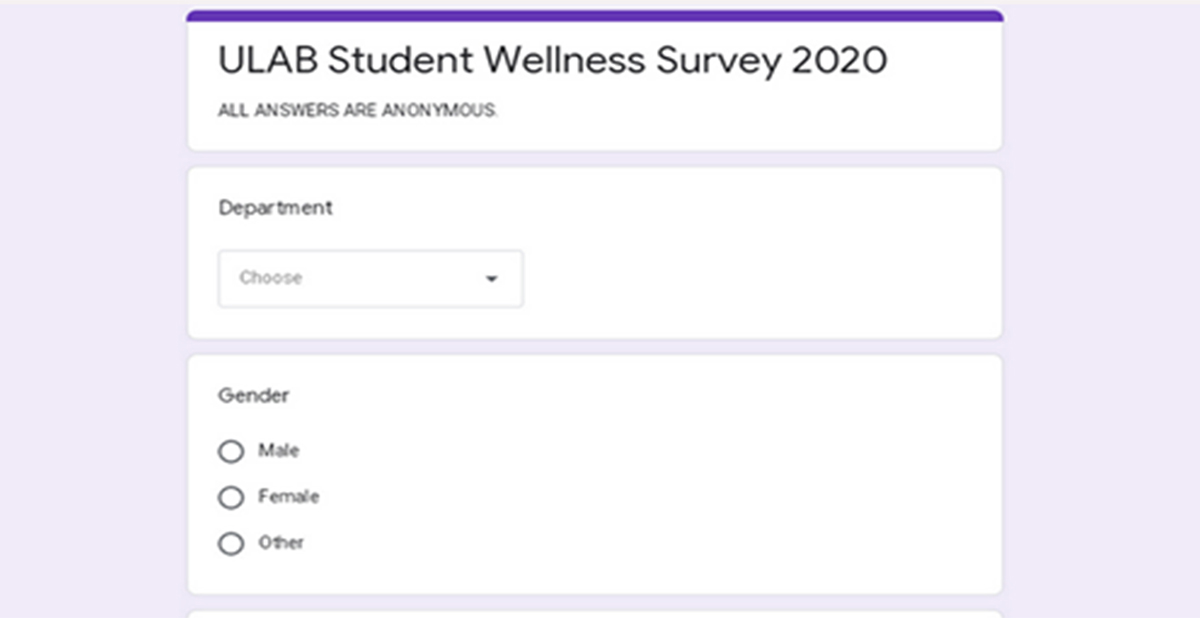ULAB Feedback Mechanisms on Online Learning
On 16 March 2020, amidst fears related to the coronavirus outbreak, the Bangladesh government issued a directive decreeing all educational institutions under the Ministry of Education to close from 18 to 31 March. In the wake of increasing numbers of deaths and confirmed infections due to the virus, the Ministry of Education extended the school closure - first from 31 March to 9 April and again from 9 to 25 April. To minimize possible academic loses, the University Grants Commission (UGC) declared on 23 March that all universities introduce online education to run academic activities. It likewise suggested use of Zoom Application, which can be accessed under the license of the Bangladesh Research and Education Network (BdREN).
In light of all these, ULAB authorities officially announced on March 16 the shift to online learning. At this time, the university was at the early part of the term; the mid-term period was scheduled to take place in the last week of March. The authorities also instructed faculty to conduct assignments, written take home exams and viva voce exams in lieu of synchronous online written examinations.
Based on the 10 April Institutional Quality Assurance Cell (IQAC) Report, there were a total of 520 required midterm exams across the various academic departments. Of these, 99.6 percent were completed. Moreover, there were a total of 2,564 required online classes. Of these, 94 percent were held. The remaining online classes are expected to be completed by the end of the term.
Since this is the first time the University has conducted full online teaching, it needs to gather data in order to examine ways for improvement in the future. Herein, the university has adopted three strategies. First, through the SAO, it is gathering initial feedback from students regarding the conduct of their online courses. Second, through the Center for Excellence in Teaching and Learning (CETL), it is surveying its faculty regarding their physical wellness, psychological wellness, financial wellness, online class response, and support needed to improve online class response. Third, the IQAC has requested students to complete their course and teacher evaluations online through the University Resource Management System or URMS. Every term, faculty are evaluated in terms of subject matter knowledge, teaching pedagogy, learning assessment, professional behavior and student development. Courses are investigated in terms of content/organization, learning environment, learning resources, teacher contribution and student contribution.
From the results of these feedback systems, ULAB’s practices relating to online teaching and learning will improve in the future.

